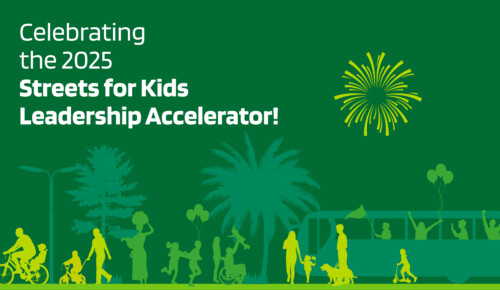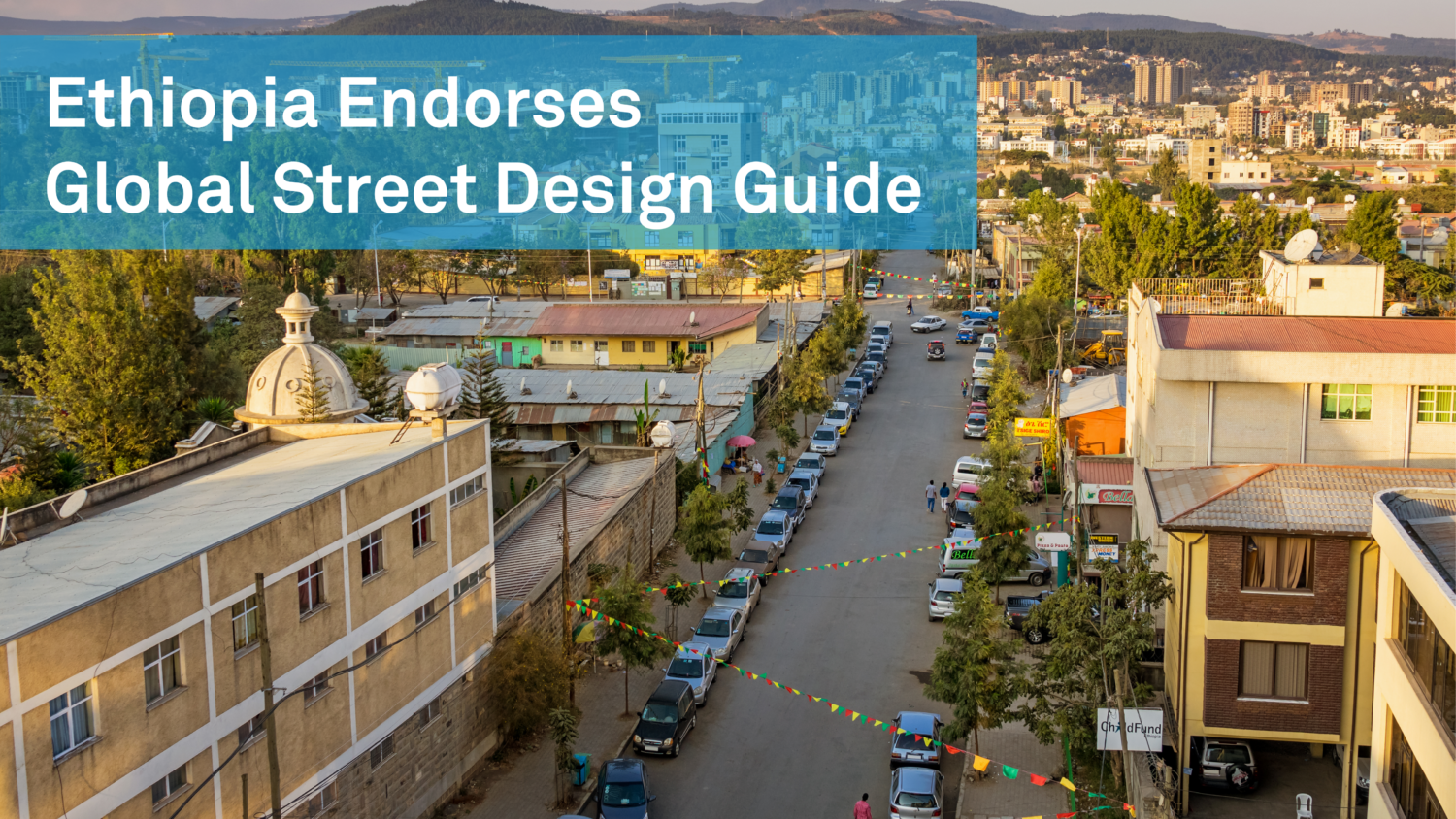On July 28, 2021, the Federal Democratic Republic of Ethiopia became the first African nation to endorse the Global Street Design Guide—a globally-accessible publication that allows urban planners, designers, and transportation practitioners in cities around the world to immediately implement tested and life-saving street designs.
Globally, 1.35 million people are killed in traffic deaths each year, with 93% of these fatalities occurring in low- and middle-income countries. According to WHO, more than half of all road traffic deaths are among vulnerable road users: pedestrians, cyclists, and motorcyclists. Funded by the Bloomberg Philanthropies Initiative for Global Road Safety (BIGRS), the Global Street Design Guide provides real-world examples of street and intersection transformations that improve safety for all road users.
Ethiopia has made remarkable strides in the last few years to address road safety issues and rethink the role of urban streets. With a focus on Addis Ababa, the capital city, the country has made sustained investments towards a safe system approach. As part of this work, with support from global partners through BIGRS, Addis Ababa has implemented over 30 safe intersection projects across the city, built over 200 kms of safe and accessible sidewalks, and begun to invest in cycling infrastructure. Additionally, they have made critical updates to their design guidance and released several road safety focused policy documents over the years. The Global Designing Cities Initiative and other partners have also supported the city in these efforts by training local staff through ongoing capacity building workshops.
“The Ministry of Transport, on behalf of the Federal Democratic Republic of Ethiopia, officially endorses the Global Street Design Guide as an integral and efficient tool for designing safe and sustainable streets and public spaces. After launching our national non-motorized transport strategy in June 2020, we see the guide as an indispensable tool in planning modern city streets, especially as we work towards a common vision with our partners at all levels of government.” – H.E. Dagmawit Moges, Minister of Transport, Federal Democratic Republic of Ethiopia
With this exciting national endorsement of the guide, the country’s leaders have communicated a powerful message to citizens and partners at all levels of government that they are committed to change.
For city leaders and practitioners, endorsing the guide serves as a “permission slip,” enabling them to shift their approach to urban street design, and to better align their strategies with global agendas such as the UN’s Sustainable Development Goals. Since its release, the guide has been endorsed by 57 cities, 48 organizations, two global regions, and two countries.
To learn more about how your city/organization/country can endorse the GSDG, and see who else has endorsed, click here.





